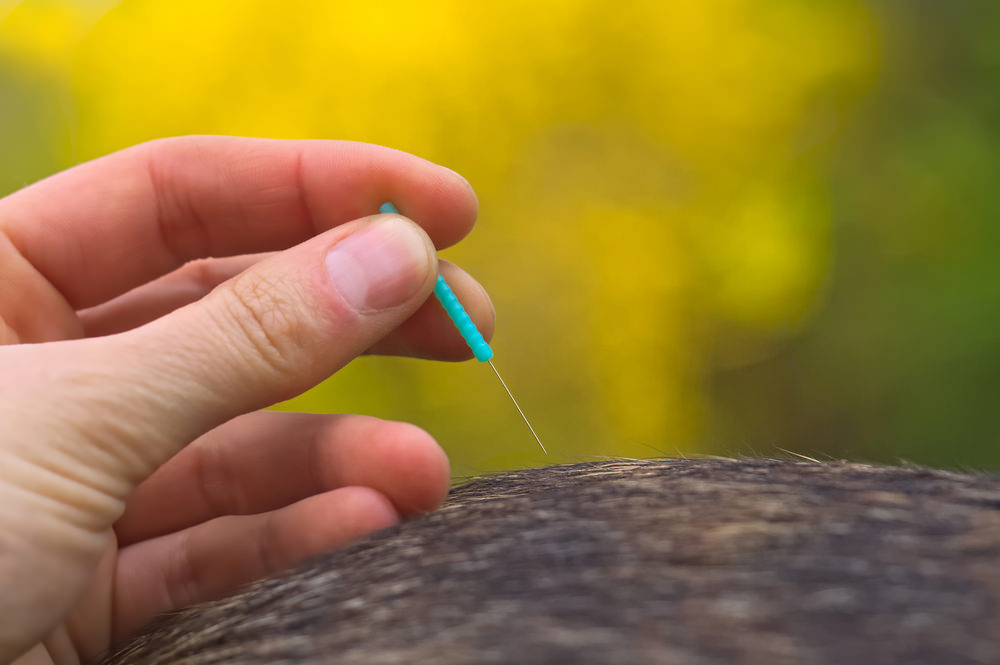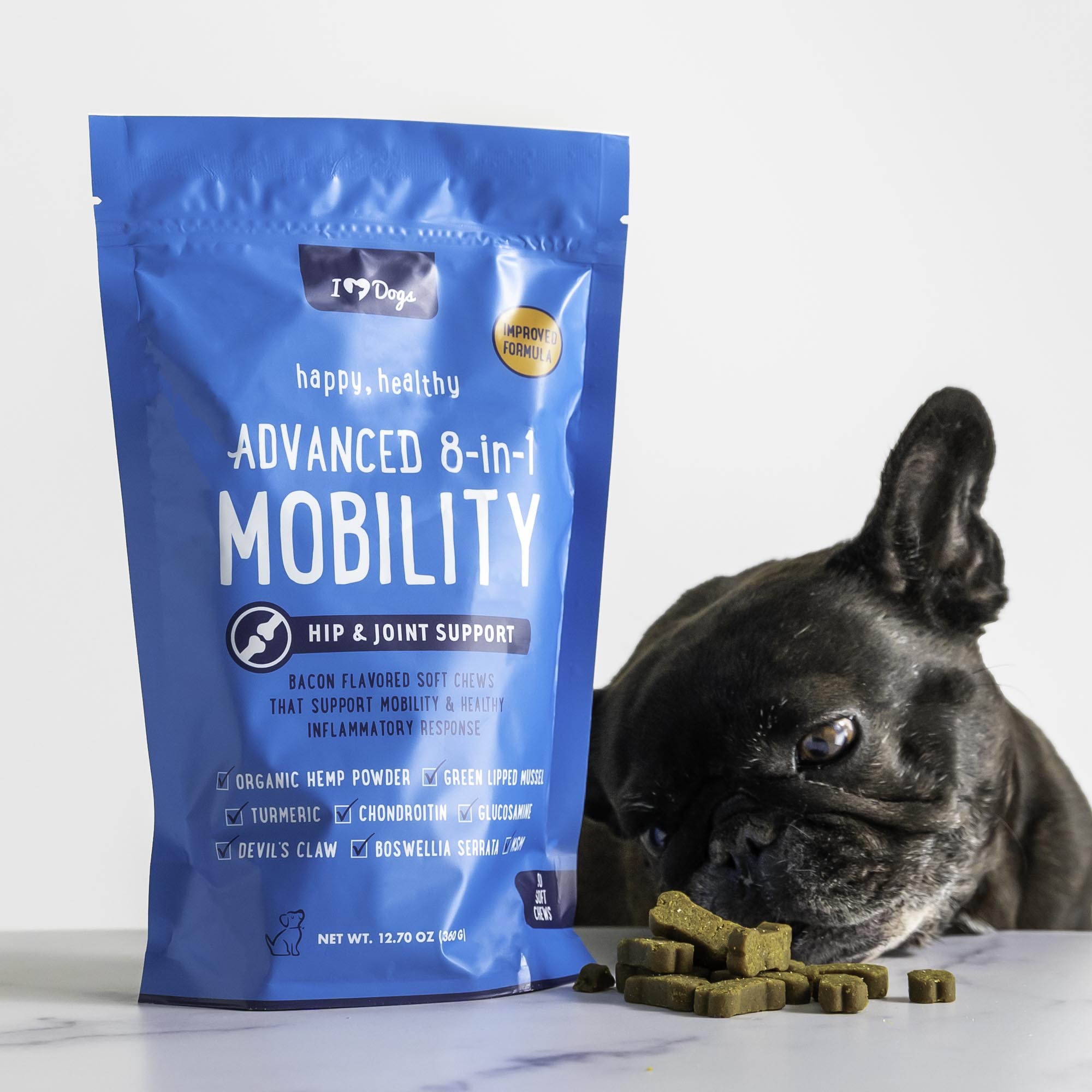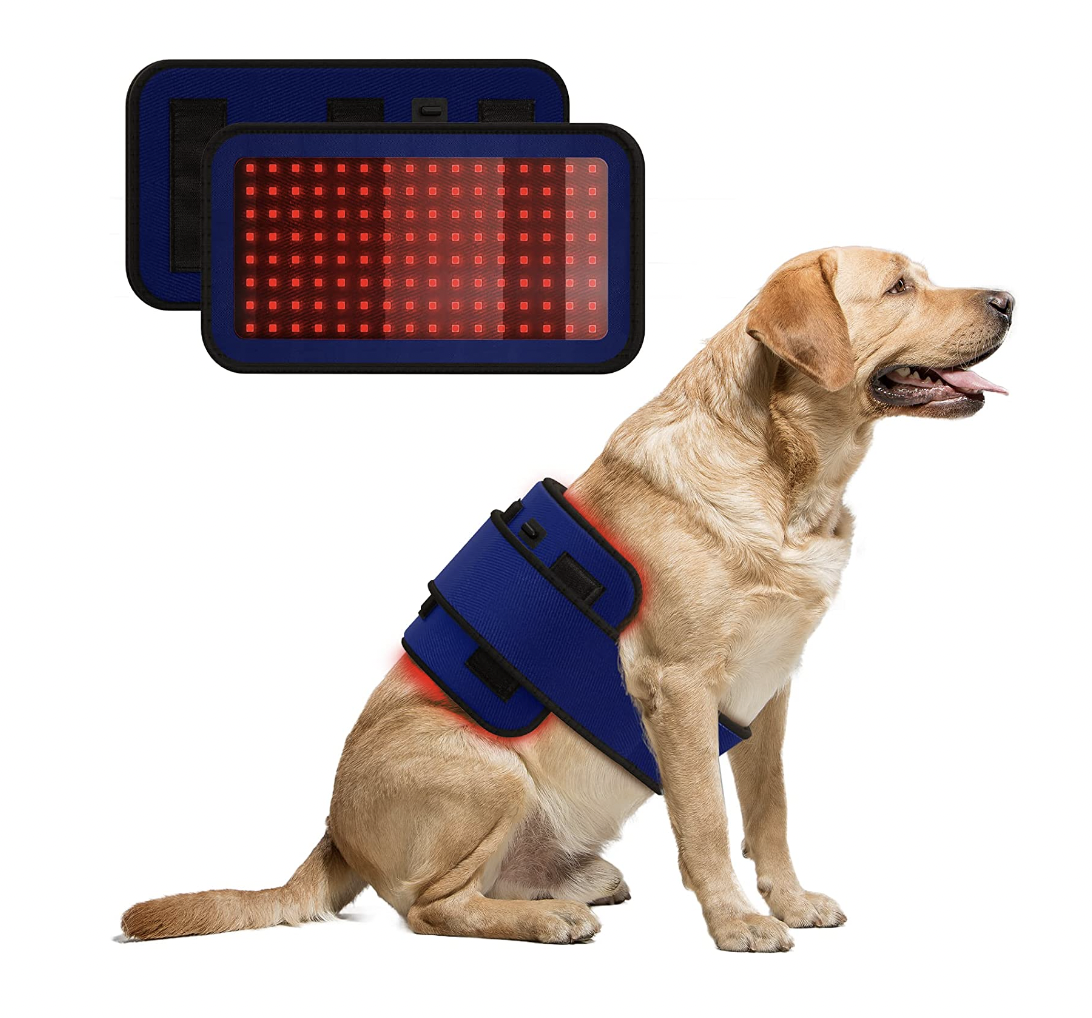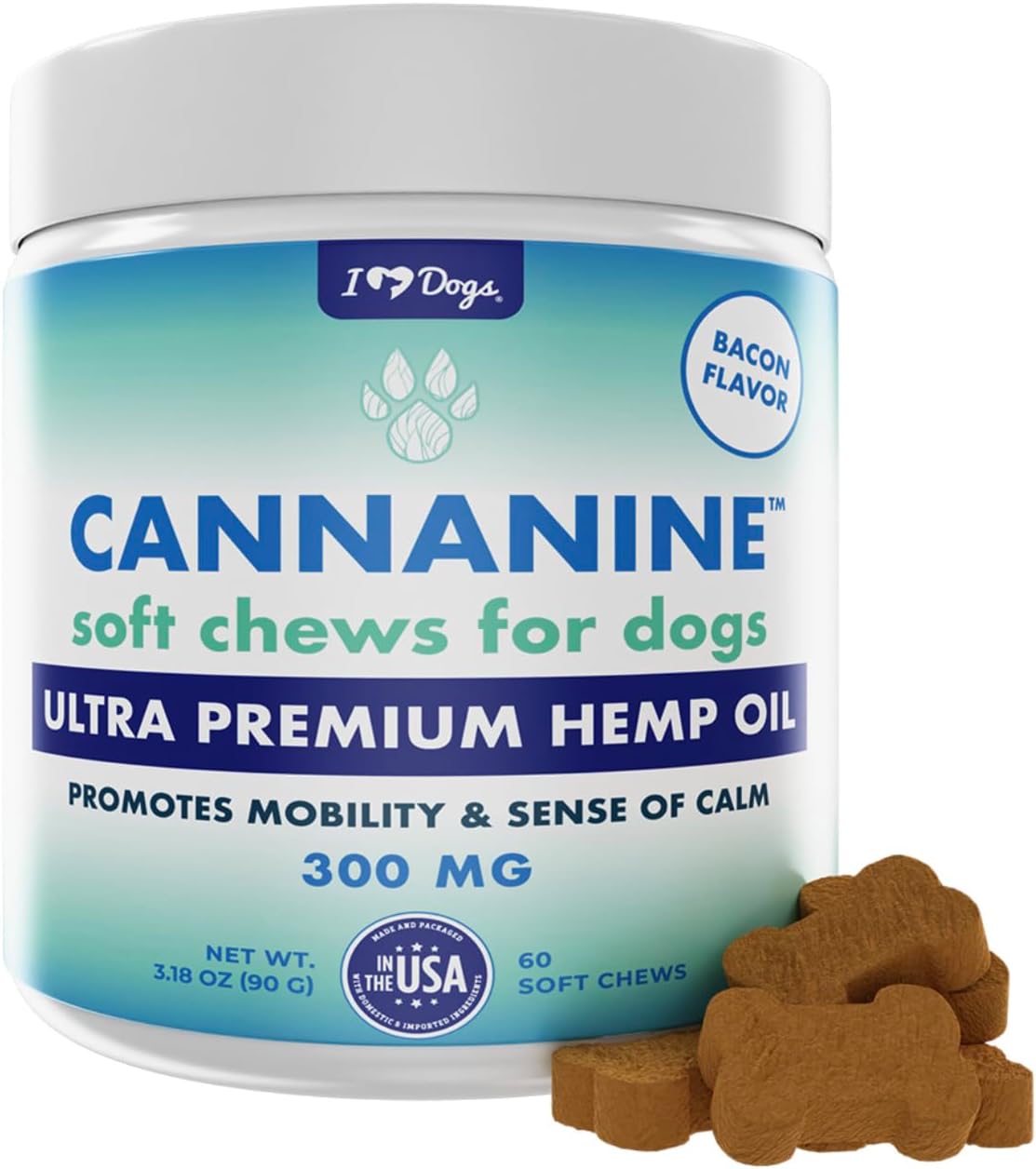
What Can You Give A Chihuahua For Joint Pain?
It’s excruciating to see your Chihuahua in pain. When you take a pet into your home you promise to love and care for it the best you can for as long as you can, but arthritis and joint pain can strike at any time and leave you feeling helpless.
Prescription NSAID pain relievers certainly have their place, but they can be tough on your Chihuahua’s liver and steroids come with a host of side effects. Luckily there are natural steps you can take to keep your dog comfortable.
Here are 10 drug-free ways to help your dog live pain-free. Be sure to consult your veterinarian before making any major changes to your dog’s diet, exercise or medication routine.
1. Maintain A Healthy Weight
The more extra weight your dog carries, the more strain his or her joints suffer. If your dog is overweight or obese, now is the time to start a weight loss regimen. If your arthritic dog is already at a healthy weight, be sure to maintain it with a healthy diet and gentle exercise.
2. Keep Moving
If your dog is diagnosed with arthritis you will definitely want to revamp his or her exercise routine, but staying active is important for joint health. Instead of long, vigorous walks or strenuous play sessions, try frequent shorter walks and short play sessions indoors on soft carpet.
3. Add Anti-Inflammatory Foods to Your Dog’s Diet
Certain foods are said to have natural anti-inflammatory properties. If your veterinarian feels it is safe, you can try adding papaya, alfalfa, celery, or ginger to your dog’s diet. Another ingredient that has become very popular in recent years is turmeric for dogs, which has been shown to have incredibly strong anti-inflammatory effects.
4. Canine Acupuncture
It may seem shocking that a dog would tolerate dozens of needles being placed into his or her body, but the acupuncture trend has become quite popular in the animal world and has shown promising results for many common canine ailments, including joint pain.

5. Physical Therapy
Many veterinary hospitals and specialty centers now offer advanced services for dogs with injuries, arthritis and mobility issues. Highly trained staff members can help keep your dog’s pain at bay with techniques like hydrotherapy. They can also teach you how to provide physical therapy at home.
6. Laser Therapy
One of the newer innovations in reducing inflammation and pain in pets is low-level laser therapy. Your veterinarian will create a schedule of treatments based on your dog’s individual needs. The treatments are easy, painless and relatively quick. You can read more about the best red light therapy devices for dogs here.
7. Massage Therapy
The same massage techniques that help relieve your stiff muscles and aching joints can also benefit your arthritic pup. Many human massage therapists also work on pets and holistic veterinarians often offer this service to their clients.
8. Prevent Slipping
Hard wood and tile floors can be like mine fields for arthritic pets. Try laying down a series of throw rugs and runners to help your dog navigate the house. Keep toenails trimmed and consider friction socks to prevent slipping.
9. Provide A Supportive Orthopedic Dog Bed
An unsupportive mattress can wreak havoc on sore joints. Be sure your dog’s bed is designed for pups with arthritis. You can review our roundup of the best orthopedic beds for dogs here.

10. Supplements
Not all canine joint supplements are created equal. Many products only contain one active ingredient (glucosamine being the most popular) while others contain more than one. For example, this 8-in-1 canine joint supplement contains not just glucosamine, but also turmeric, green lipped mussel, MSM, chondroitin, devil’s claw, and more. It’s important to choose a joint health supplement that offers the correct therapeutic dosage for your Chihuahua’s needs and is made from the highest quality ingredients.
To learn more about the 8-in-1 Canine Joint Supplement, visit here.

11. Hemp Extract Supplements
In last last 5 years, many studies have been done on the effectiveness of full and broad spectrum hemp oil in relieving support an arthritic dog’s mobility. Here at iHeartDogs, we use and recommend that Cannanine brand of hemp chews available on Amazon.
Frequently Asked Questions:
Do Chihuahuas Need Hip And Joint Supplements?
All of us hope to spend as much time as possible with our chihuahuas which is why they need supplements to help with hip and joint health. As your chihuahua ages, consider making healthy changes to improve their lifespan and quality of life. Please check with your own vet before making any alterations to your chihuahua’s diet or medical treatment. While your dog can live without the supplements, they can go a long way in making life more comfortable and enjoyable.
What Supplements Are Good For Chihuahuas Arthritis?
Glucosamine and MSM are a good start for canine supplements for arthritis.
Methylsulfonylmethane (MSM) is an excellent anti-inflammatory essential for connective tissue. Moreover, it has the potential to protect the liver and reduce pain. Chondroitin sulfate reduces inflammation and aids in collagen preservation. Other supplements you can try include yucca, CBD oil, and turmeric, all for their benefits in reducing inflammation and pain for chihuahuas.
What Can I Give My Chihuahua For Joint Pain & Arthritis?
Regarding joint supplements for dogs, not all brands are created equal. Some products have multiple active ingredients, while others only have one (the most common being glucosamine). In addition to glucosamine, the ingredients list for this iHeartDogs 8-in-1 Canine Joint Supplement includes turmeric, green-lipped mussel, MSM, chondroitin, devil’s claw, and more. Selecting a joint health supplement for your chihuahua with high-quality ingredients and therapeutic doses for your dog’s tiny stature is crucial.
Is Cosequin Or Dasuquin Better For A Chihuahua?
Joint disease in chihuahuas can be combatted with the help of supplements like Cosequin and Dasuquin. In addition to reducing inflammation, joint cartilage protection supplements like Cosequin and Dasuquin aim to prevent further damage to the cartilage. Make an appointment with your vet for a checkup if you are worried about a change in your pet’s activity level. You can inquire about whether or not a joint supplement would be beneficial for your pet with the vet.
Both Cosequin and Dasuquin contain the same effective ingredients—glucosamine, chondroitin, and MSM—and are marketed for canine =use. Avocado/soybean unsaponifiables (ASU) are an additional vital ingredient in Dasuquin. However, Cosequin comes in smaller sizes, which makes it easier for miniature dogs like a chihuahua to chew and swallow.
Do Small Dog Breeds Need Joint Supplements?
Joint supplements are necessary for arthritic dogs, no matter their size. Dogs of all sizes are capable of joint damage and pain. However, smaller dogs may have worse issues as they have to work so much harder to get somewhere. For instance, large dogs can simply jump on a couch. A chihuahua can try but still may need to extend their muscles and joints beyond their limit to get on the couch. It’s definitely best to help your little dog up to places they cannot reach to prevent worse problems for their joints when old.
Is Glucosamine Good For Chihuahuas?
Yes, your dog’s body produces glucosamine, an amino sugar that helps create cartilage molecules. The spongy layer of shock-absorbing cartilage and lubricating synovial fluid declines as your dog ages due to decreased glucosamine production. This leads to your dog’s joints tightening and rubbing, which causes pain.
Glucosamine supplements increase cartilage formation and thicken synovial fluid, cushioning, lubricating joints, and decreasing arthritis progression. Chihuahuas need extra as their little bodies need to work harder than a larger dog’s body. Your vet will likely suggest a chewable supplement with veterinarian-grade glucosamine and chondroitin.
Does Turmeric Help Joint Pain In Chihuahuas?
For dogs with joint issues like arthritis, turmeric has been touted as a potential remedy. Turmeric’s anti-inflammatory effects could make life easier by decreasing swelling and pain. Curcumin, the active ingredient in turmeric, has been linked to considerable reductions in pain markers in arthritic dogs and reduced inflammation.
Is Cbd Or Glucosamine Better For Chihuahuas?
The simple solution to the conundrum of whether or not to feed your dog glucosamine or CBD is to give him both. While glucosamine can repair and preserve joint damage, CBD has beneficial effects on health in general. When combined, they can improve your dog’s quality of life from puppyhood through old age. When possible, it’s best to give your chihuahua both supplements to improve their health and their comfort.
What Is The Best Joint Care Supplement For Chihuahuas?
If your dog is experiencing joint pain, you naturally want to help. The Advanced 8-in-1 Mobility Chew made by iHeartDogs will help your chihuahua get moving again. It is the optimal combination of eight potent natural substances that together encourage better joint health, reduced pain, and more movement.
Additionally, with every purchase, 14 shelter dogs will receive nutritious meals.
Some of the benefits of these delicious dog treats include reduced aches and pains, reduced cartilage breakdown, and increased movability and flexibility.
All of these benefits come from omega fatty acids, MSM, chondroitin, green-lipped mussels, organic turmeric, and Boswellia Serrata.
The treats are easy to give, although you will need to break them into smaller pieces for a chihuahua as they have such tiny mouths. Either way, you do not have to worry about forcing your dog to take a pill! Finally, they are both safe and effective, making them the perfect addition to any dog’s diet.
What Are The Side Effects Of Glucosamine For Chihuahuas?
While glucosamine is generally regarded safe for canine use, an overdose is possible. Many dog foods and treats now add glucosamine which could lead to an accidental overdose. If your dog has an allergy or intolerance to glucosamine, it may have some of the following negative effects:
Vomiting
Diarrhea
Constipation
Gas
Lack of appetite
Drowsiness
Do Cbd Supplements Help Chihuahuas Arthritis & Joint Pain?
CBD shows massive potential to help relieve joint pain, calm anxious dogs, reduce allergy-related inflammation, and stop seizures in dogs with epilepsy. Exciting new studies on the effects of CBD on the mobility of elderly dogs have emerged in the last few years. CBD oil increases movement in dogs, including Chihuahua, for a better life.
Keep in mind that arthritis is a degenerative ailment that will worsen over time, but it seems CBD can help ease the pain in the meanwhile. As CBD has the benefit of working on multiple issues, it’s one of the best supplements for dogs. Additionally, CBD has relatively no side effects making it a great option even for sensitive dogs.
Because of the way that CBD is produced, it is crucial that you use a pure CBD product on your chihuahua. Hemp, from which CBD is derived, has a natural propensity to take up contaminants from the ground. We suggest a CBD oil or CBD chew that has 0% THC and is tested multiple times during the manufacturing process to ensure it is pure and effective. We only sell and recommend the Cannanine brand at iHeartDogs.
Can Glucosamine Cause Liver Damage In Chihuahuas?
There is no evidence to suggest that glucosamine poses a threat to the livers of dogs, and no such link has been established. If the liver levels in your dog are high, it is possible that another issue, like a disease, liver failure, or simply getting older, is to cause. It is in your best interest to have your veterinarian perform any additional tests necessary to establish the reason for the higher readings and the most effective course of therapy for the condition.
It is essential to remember that since most glucosamine products are derived from shellfish, canines hypersensitive to seafood may also be sensitive to glucosamine products. In addition, it can be difficult to get glucosamine supplements that do not contain shellfish. Even now, a severe allergic reaction to glucosamine is quite rare, and most dogs can tolerate it just fine when it is administered in safe doses.
- Best Joint Supplement for Dogs
- Best CBD Gummies for Dogs
- Goat's Milk for Dogs
- Skin & Coat Supplements for Dogs
- Weight Gain Supplements for Dogs
- Muscle Building Supplements for Dogs
- Heart Supplements for Dogs
- Multivitamins for Dogs
- Pill Pockets for Dogs
- Digestive Enzymes for Dogs
- Turmeric for Dogs
- Liver Supplements for Dogs
- Tear Stain Supplement for Dogs
- Breath Fresheners for Dogs
- Kidney, Urinary, & Bladder Supplements for Dogs
- Stool Eating Deterrent for Dogs
- Eye Supplements for Dogs
- Melatonin for Dogs
- Apple Cider Vinegar for Dogs
- Green Lipped Mussels for Dogs
- L Theanine for Dogs
- Chondroitin Supplements for Dogs
- MSM for Dogs
- Valerian Root for Dogs
- Chamomile for Dogs
- Boswellia for Dogs
- L Tryptophan for Dogs
- Yucca for Dogs
- Licorice Root for Dogs
- Bromelain for Dogs
- Papain for Dogs
- Devil's Claw for Dogs
- Quercetin for Dogs
- Hemp gummy for dogs
- Best Hemp Dog Treats
- Best Hemp Oil for Dogs
- Best Calming Treats, Chews, & Supplements for Dogs
- Best Bone Broth for Dogs
- Best Fish Oil for Dogs
- Best Probiotics for Dogs
- Best Hip Dysplasia Supplements for Dogs
- Best Colostrum for Dogs
- Best Quercetin for Dogs
- Best Greens for Dogs Supplements
- Best Vitamin C Supplements for Dogs
- Best Probiotic for Dog with Allergies
- Best Taurine Supplements for Dogs
- Best Dog Food Toppers
- Best Anal Gland Supplement for Dogs
- Best Dog Probiotic Powder
- Best CoQ10 Supplement for Dogs
- Best Liquid Glucosamine for Dogs
- Best Wrinkle Creams, Balms, and Wipes for Dogs
- Best Puppy Calming Treats
- Best Colloidal Silver for Dogs
- Best Adaptogen Supplements for Dogs
- Best Cognitive Supplements for Dogs
- Best Bee Pollen for Dogs
- Best Vitamin A Supplements for Dogs
- Best Vitamin E Supplements for
- Best Liquid Glucosamine Supplements for Dogs
- Best SAM-e Supplements for Dogs
- Best Hyaluronic Acid Supplements for Dogs
- Best Apple Cider Vinegar Supplements for Dogs
- Best Diarrhea Medicine for Dogs
- Best Milk Thistle for Dogs
- Best Turkey Tail Mushroom Supplements for Dogs
- Best Astaxanthin Supplements for Dogs
- Best Lutein Supplements for Dogs
- Best Electrolyte Supplements for Dogs
- Best Coconut Oil for Dogs
- Best Prenatal Vitamins for Dogs
- Best Puppy Milk Replacements
- Best Iron Supplements for Dogs
- Best Dewormer Products for Dogs
- Best Mange Medications for Dogs
- Best Cough Relief Products for Dogs
- Best Sinus Relief Products for Dogs
- Best Collapsed Trachea Supplements for Dogs
- Best Fireworks Anxiety Relief Products for Dogs
- Best Thunderstorm Anxiety Relief Products for Dogs
- Best Travel Anxiety Relief Product for Dogs
- Best Supplements for a Dog with a Torn ACL
- Best Supplements for a Dog with Patellar Luxation
- Best Supplements for a Dog with Intervertebral Disc Disease
- Best Zinc Supplements for Dogs
- Best Biotin Supplements for Dogs
- Best Tart Cherry Supplements for Dogs
- Best Resveratrol Supplements for Dogs
- Best Ginkgo Biloba Supplements for Dogs
- Best Ashwagandha Supplements for Dogs
- Best Supplements for Dogs with Cushing's Disease
- Best Adrenal Supplements for Dogs
- Best NAD+ Supplements for Dogs
- Best NMN Supplements for Dogs
- Best Supplements for Dogs with Dementia
- Best Supplements for Dogs with CCD(Canine Cognitive Dysfunction)
- Best Fiber Supplements for Dogs
- Best Spirulina for Dogs
- Best Hairball Remedies for Dogs
- Best Eye Drops for Dogs with Allergies
- Best Magnesium Supplements for Dogs
- Best Brushes for Double-Coated Dogs
- Best Dandelion Root Supplements for Dogs
- Best Probiotic for Dogs with Yeast Infections
- Best Flaxseed Oil for Dogs
- Best Chamomile Supplements for Dogs
- Best Lavender Supplements. Treats & Sprays for Dogs
- Best Collagen Supplements for Dogs
- Best Kelp Supplements for Dogs
- Best Activated Charcoal for Dogs
- Best Slippery Elm Supplements for Dogs
- Best Supplements for Dogs with Seizures & Epilepsy
- Best Antioxidant Supplements for Dogs
- Best Ubiquinol Supplements for Dogs
- Best Hormone & Glandular Supplements for Dogs
- Best Thyroid Supplements for Dogs
- Best Iodine Supplements for Dogs
- Best Dog Shedding Supplements for Dogs
- Best Detox Supplements for Dogs
- Best Postbiotics for Dogs
- Best Aspirin Products for Dogs
- Best Dog Anti-Nausea Products
- Best Dog Mouthwashes
- Best Camelina Oils for Dogs
- Best Hemp Seed Oils for Dogs
- Best Natural Anti-Inflammatories for Dogs
- Best Cancer Supplements for Dogs
- Best Sardine & Anchovy Oils for Dogs
- Best Fatty Acid Supplements for Dogs
- Best Chia Seed Supplements & Treats for Dogs
- Best Olive Oils for Dogs
- Best Amino Acid Supplements for Dogs
- Best Moringa Supplements for Dogs
- Best Echinacea Supplements for Dogs
- Best Cranberry Supplements for Dogs
- Best D-Mannose Supplements for Dogs
- Best Nettle Leaf Supplements for Dogs
- Best Marshmallow Root Supplements for Dogs
- Best Astragalus Supplements for Dogs
- Best Pumpkin Seed Supplement for Dogs
- Best Supplements for a Dog Wetting The Bed
- Best Blueberry Supplement for Dogs
- Best Bromelain Supplements for Dogs
- Best Yucca Supplements for Dogs
- Best Ginger Supplements for Dogs
- Best Rosehip Supplements for Dogs
- Best Allergy Medicines for Dogs
- Best Reishi Mushroom Supplement for Dogs
- Best Maitake Mushroom Supplement for Dogs
- Best Chaga Mushroom Supplement for Dogs
- Best Shiitake Mushroom Supplement for Dogs
- Best Cordyceps Mushroom Supplement for Dogs
- Best Lion's Maine Supplement for Dogs
- Have question? - Ask in our Dog Health Forum


 Toledo, United States.
Toledo, United States.